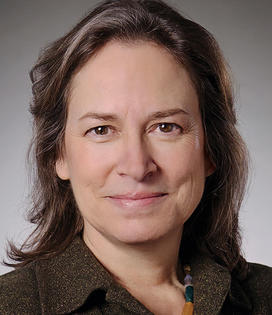
At the Andlinger Center, Carter has overseen the start of an undergraduate certificate program, creation of a corporate-affiliates program, and initiatives in research-innovation funding. Her current research is focused on discovery and design of molecules and materials for sustainable energy, including converting sunlight to electricity and fuels.
Carter will succeed H. Vincent Poor *77, who has served as dean since 2006 and will return to full-time teaching and research.
Carter said she looks forward to encouraging new fields of research, educating “students of all backgrounds as to the wonderful creativity and societal impact associated with being an engineer,” and expanding the school’s partnerships.
The University extended OFFERS OF ADMISSION to 1,894 students for the Class of 2020, 6.5 percent of the record 29,303 who applied. The acceptance rate is the lowest in Princeton’s history. Of the total, 785 were admitted from the early-action pool. Among those offered admission, 49.5 percent are women, 50.6 percent self-identified as racial or ethnic minorities, 63 percent attend public schools, and 17.5 percent will be the first in their families to attend college — all record numbers for a Princeton class. Of those admitted, 11.2 percent are legacies. Another 1,237 candidates are on the waitlist. The target size for the class is 1,308 students. Stanford had the lowest acceptance rate — 4.7 percent — among peer schools.
Princeton was one of several universities targeted by a white supremacist hacker who sent an ANTI-SEMITIC AND RACIST FLIER to networked printers in late March. The flier, which depicted two swastikas, urged the “white man” to join “in the struggle for global white supremacy.” Princeton officials said steps have been taken to prevent off-campus computers from having access to University printers and that the incident is under investigation by the FBI.











No responses yet